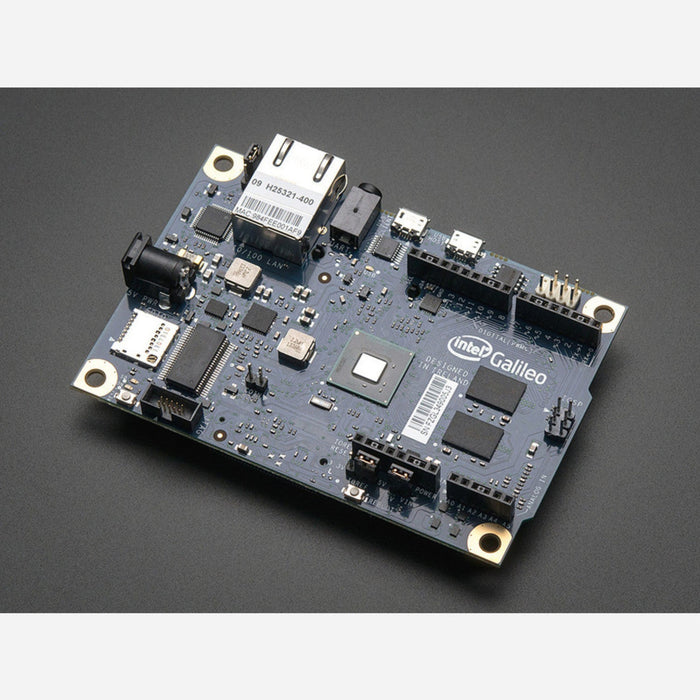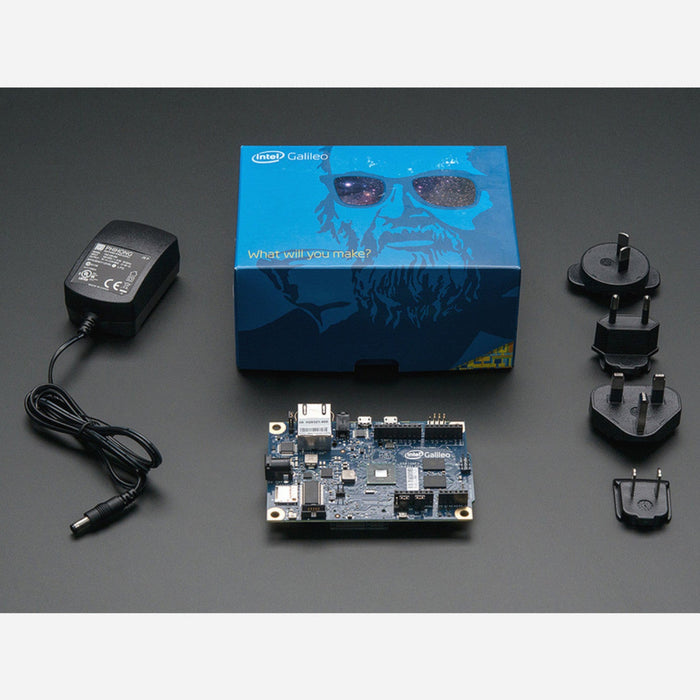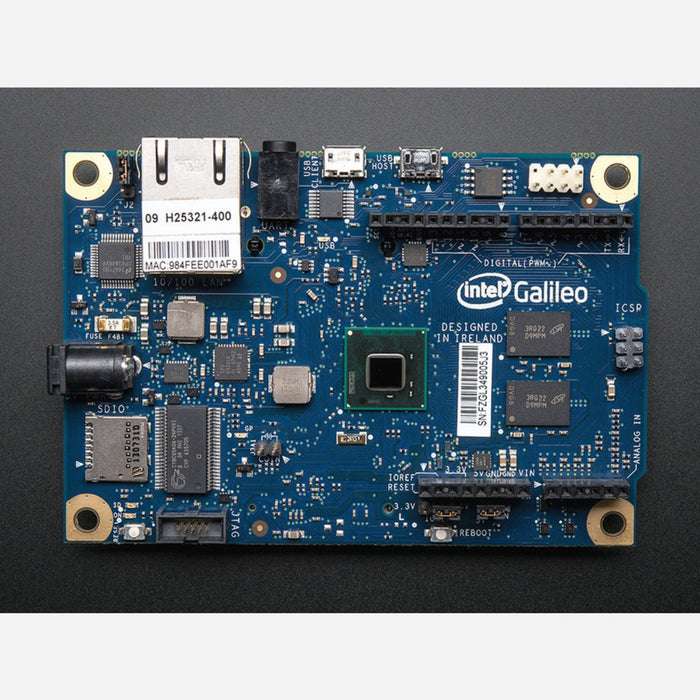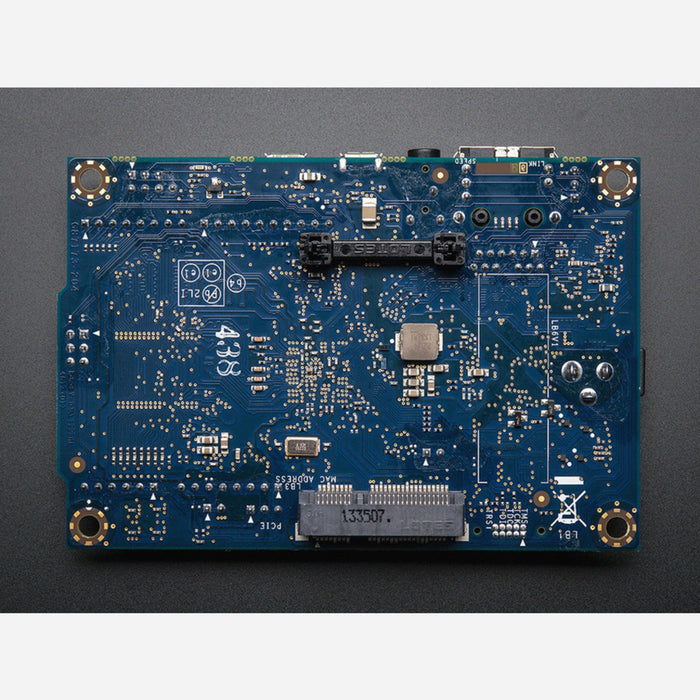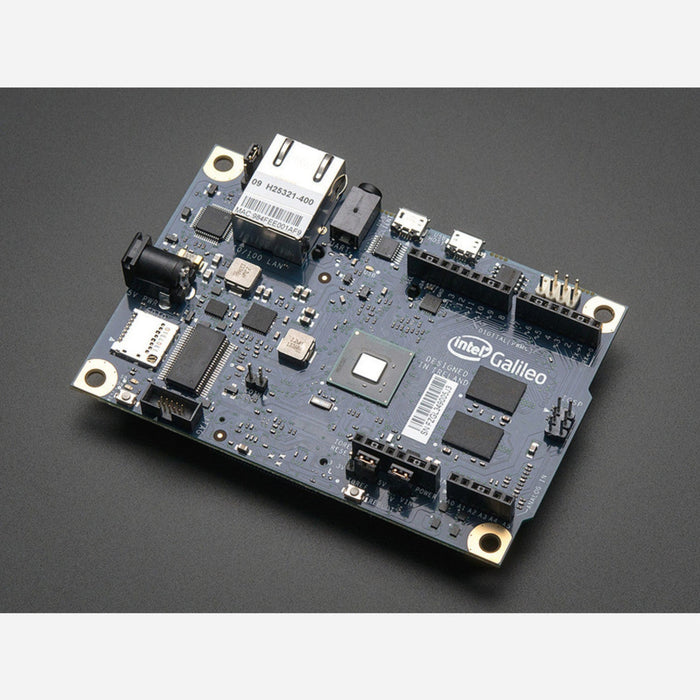
Intel® Galileo Development Board - Arduino Certified
The Intel Galileo is a development board based on the Intel Quark SoC X1000, a 32-bit Pentium-class application processor. It is hardware and software pin-compatible with Arduino Uno R3 shields, combining the familiar Arduino ecosystem with Intel architecture and PC-standard I/O ports.
The board operates at 3.3 V core voltage with an on-board jumper for 5 V I/O translation (enabled by default), ensuring compatibility with both 3.3 V and 5 V Arduino shields. It is fully compatible with the Arduino IDE for easy programming and rapid prototyping.
Key Features
- Intel Quark SoC X1000 – 32-bit Pentium-class processor
- Arduino Uno R3 Compatible – Same pinout and shield compatibility
- 3.3 V / 5 V I/O – Jumper-selectable voltage translation for shield compatibility
- Arduino IDE Support – Program using the standard Arduino development environment
- PC-Standard I/O – Ethernet, mini-PCIe, USB host/client, and more
Specifications
- Processor – Intel Quark SoC X1000 (32-bit, single-core)
- Flash – 8 MB NOR
- Digital I/O – Pins 0–13 (Arduino 1.0 pinout)
- Analogue Inputs – A0–A5
- Ethernet – 100 Mbps
- Mini-PCI Express – Full-size slot
- MicroSD Slot – Expandable storage
- RS-232 Serial Port – Standard serial communication
- USB Host Port – For peripherals
- USB Client Port – For programming and communication
- Core Voltage – 3.3 V (5 V I/O via jumper)
- Headers – ICSP, UART (pins 0/1), AREF
Ideal For
- IoT prototyping with Intel architecture
- Arduino projects requiring Ethernet or mini-PCIe expansion
- Bridging Arduino shields with PC-standard connectivity
- Linux-capable embedded applications
The Intel® Galileo Development Board - Arduino Certified appears in the following collections:

